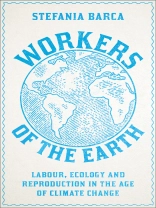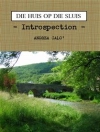Capitalism is destroying our planet, but like most social progress in the last two centuries, ecological justice can only be achieved through working-class struggle.
In Workers of the Earth, Stefania Barca uncovers the environmental history and political ecology of labour to shed new light on the potentiality of workers as ecological subjects. Taking an ecofeminist approach, this ground-breaking book makes a unique contribution to the emerging field of environmental labour studies, expanding the category of labour to include waged and unwaged, industrial and meta-industrial workers.
Going beyond conventional categories of ‘production’ and ‘reproduction’ as separate spheres of human experience, Barca offers a fresh perspective on the place of labour in today’s global climate struggle, reminding us that the fight against climate change is a fight against capitalism.
Зміст
Acknowledgements
Introduction: Labour in the Great Acceleration (1945 to Present)
Part I – History
1. Labouring the Earth
2. Bread and Poison
3. Refusing ‘Nuclear Housework’
4. Taking Care of the Amazon
Illustrations
Part II – Political Ecology
5. Greening the Job
6. Labour and the Ecological Crisis
7. The Labuor(s) of Degrowth
Epilogue: Care Work in the Post-Carbon Transition
Notes
Index
Про автора
Stefania Barca is an environmental historian and a feminist political ecologist. She is the author of Forces of Reproduction: Notes for a Counter-Hegemonic Anthropocene and of Enclosing Water: Nature and Political Economy in a Mediterranean Valley, which was awarded the Turku Environmental History Book Prize.












